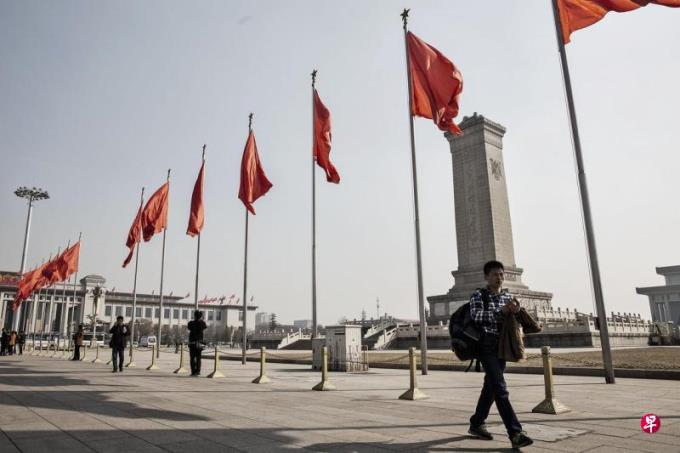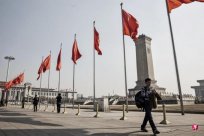
The Chinese government needs extraordinary determination and flexible policy formulation to reduce local government debt, re -assign expenditure responsibilities and manage financial risks.This process should follow three principles: First, local governments should avoid intervention resource allocation and price formation, and give it to the market and enterprise guidance.Secondly, the central government shall manage all industries and fiscal policies, and shall not apply additional responsibilities to the local government.Finally, local officials should focus more on basic government functions, such as infrastructure construction, providing public services, maintaining social order, and correcting market failures.
Putting decision -making power from the central government to local officials is widely regarded as one of the most effective policy reform measures in China in the past 40 years.As the Chinese government shifts from class struggle to economic development, decentralization has become an important catalyst to promote growth.
Compared with the central plan system, local governments can better adjust economic decision -making based on local conditions, and can also promote economic activities when the market is underdeveloped, including protecting ownership and coordinating commercial transactions.
After the reform is in place, the local government has started fierce competition in order to achieve rapid economic growth. A number of studies have shown that there is a positive correlation between local leaders' promotion opportunities and the growth of GDP (GDP) in the jurisdiction.The mayor, like the CEO of the city's economy, has implemented investment promotion plans at all levels and provides potential investors with various subsidies.The local government has also played a vital role in China's economy.
Although efficiency improves in the early stage, decentralization is not the same as market liberalization.The right to allocate resources is still in the hands of the government, but the controller is a local rather than the state government.
Turning municipal officials into institutions that perform government and business functions at the same time are a transitional arrangement to some extent.This arrangement in China's market failed to operate normally, especially the 30 years before the reform, it is indeed effective.But that period has ended, and now the local government can be said to be the biggest source of distorted and financial risks in the Chinese market.
For example, a large part of the income of the municipal government comes from the sale of state -owned urban land, and the income is completely belonging to the local government.This is one of the main factors behind China's expanding real estate bubbles and related financial risks.Moreover, local leaders often spend most of these income faces with low usage, such as parks, concert halls and airports.
Local governments have also promoted the development of the central government to designate the industry.For example, it attracts green energy companies by providing tax reduction, subsidy credit, and free land, but this localized industrial policy is mainly used to expand production capacity rather than overcoming technical bottlenecks.
To make matters worse, local governments sometimes prevent enterprises from closing down due to concerns about local employment and living standards.This "investment promotion" method distorted the competitive environment, distorted resource allocation, reduced product quality, and exacerbated the problem of overcapacity.
The most worrying is the major financial risk of local government debt (which is equivalent to 32%of China's GDP in 2023).The starting point of this dangerous over -loan behavior is the incompatibility between the fiscal resources of the local government and the liability for expenditure.
In order to raise funds, local governments with insufficient cash adopt various innovative income programs, one of which is the local government investment instrument.However, when local governments borrow money from the market, investors will only consider the central government's debt solvency, so that the former can borrow and spend at unsustainable speeds.
If China wants to continue economic reform, it is necessary to restrain local governments.The Third Plenary Session of the 20th Central Committee of the Mainland Government, which closed in July, reiterated the promise of decisive role in resource allocation, and also emphasized to solve the problem of market failure.Regulating the behavior of local governments is a key step in this direction.
TheThird Plenary Session of the Third Central Committee formulated some reform measures for this, such as standardizing the investment promotion plan to prohibit improper industrial subsidies and strengthen supervision of local government debt management.However, it is not easy to implement these changes. The Chinese government needs extraordinary determination and flexible policy formulation to reduce local government debt, re -assign expenditure responsibilities and manage financial risks.
This process should follow three principles: First, local governments should avoid intervention in the allocation of resource allocation and price formation, and submit it to the market and enterprise guidance.Secondly, the central government shall manage all industries and fiscal policies, and shall not apply additional responsibilities to the local government.Finally, local officials should focus more on basic government functions, such as infrastructure construction, providing public services, maintaining social order, and correcting market failures.
If these changes can be successfully implemented, they can largely support China's strong economic growth, while achieving the goal of the Chinese government to build a high -level socialist market economy.
The author is the dean of the National Development Research Institute of Peking University, a professor of Peking University Boya, and a member of the Monetary Policy Committee of the People's Bank of China
English Original: China Must Rein in Local Governments
All rights reserved: Project syndicate, 2024.




